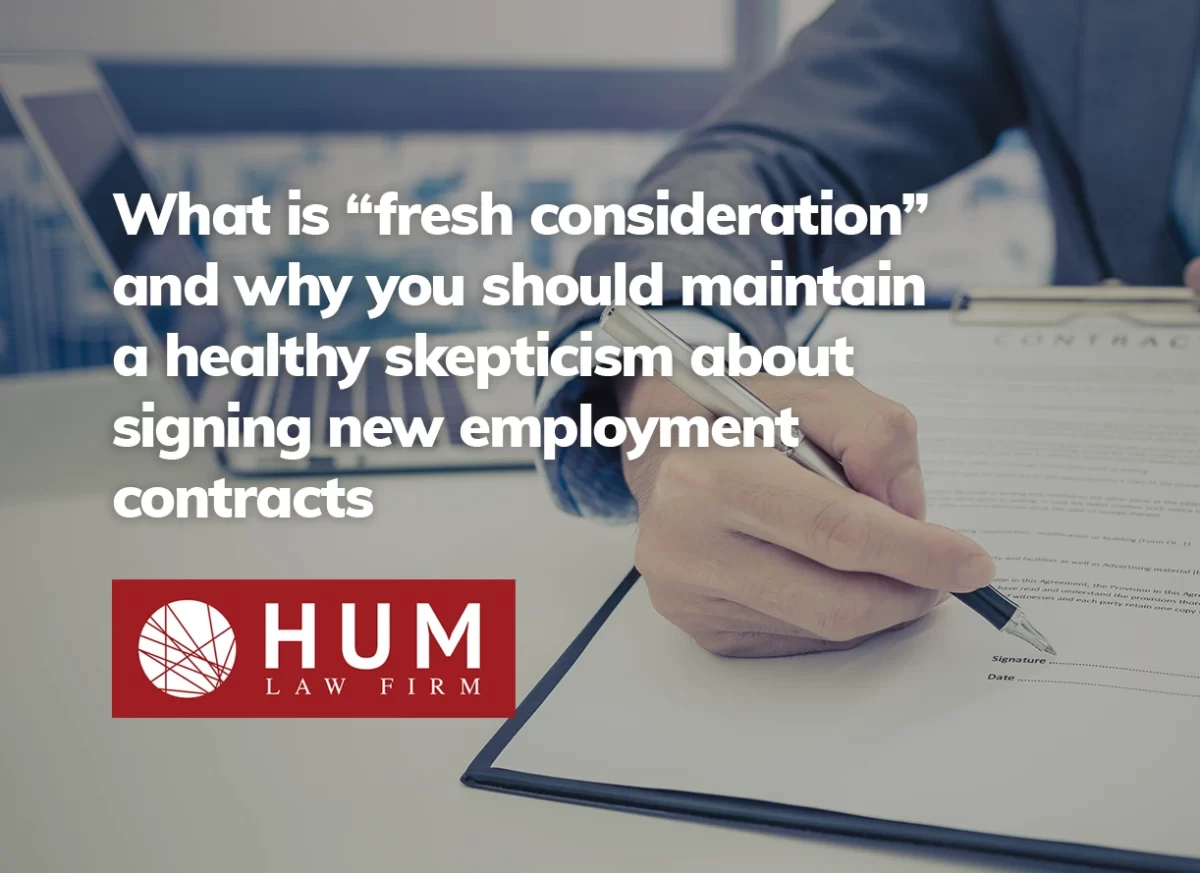Entering into a new contract as an employee may appear routine, but the legal framework governing employment agreements is intricate and can have substantial consequences if not managed properly. This is highlighted in a recent case, Giacomodonato v. PearTree Securities Inc. (2024), where an employee was terminated after he signed a new contract. He claimed that he was owed unpaid compensation and wrongful dismissal damages in an amount between $3.194 million and $3.927 million under the old contract, while the employer argued that the amount should be somewhere between $240,000 and $627,516 under the new contract. Let’s look into this cautionary tale: never sign onto a new contract with changed terms of employment without understanding what the changes mean.
Will the New or Old Contract Stand Up In Court?
Davide Giacomodonato was a successful investment banker. He was recruited by PearTree Financial Services and PearTree Securities Inc. (“PearTree”) to serve as President and Co-Head of Banking. His first employment contract was signed in April 2016. By July 2016, the parties had negotiated and agreed to a second employment contract.
An important part of Giacomodonato’s compensation is a variable payout, which is an incentive calculated as a certain percentage of PearTree’s revenue. Under the second contract, the variable payout was reduced by 25% due to the departure of another executive of PearTree. The new contract also included a valid termination clause allowing PearTree to dismiss him without cause any time after September 30, 2017, by providing him with salary continuance until July 10, 2018, while the first contract does not include such a termination clause.
In January 2018, PearTree relied on the second contract and terminated Giacomodonato’s employment without cause. Giacomodonato sued for wrongful dismissal, claiming that his entitlements should be based on the more favourable terms of the first contract.
Whether the first or the second contract governed became one of the focal points of this legal battle. The trial judge disagreed with Giacomodonato and applied the second contract. The Court of Appeal upheld this decision, stating that the second contract was valid and enforceable due to the presence of “fresh consideration”.
What Does “Fresh Consideration” Mean?
In legalese, “consideration” refers to something of value that is exchanged between parties entering into a contract. Without consideration, a contract is not legally binding. Importantly, when an existing employment contract is modified or replaced, the employer must provide “fresh consideration” to the employee.
In this Giacomodonato case, the trial judge found that the second contract was supported by fresh consideration, including a $40,000 payment to cover costs associated with leaving his previous employer and an additional two weeks of paid vacation. The trial judge determined that these new benefits were sufficient to validate the second contract, which was upheld by the appellate court.
Do Courts Look Into the Adequacy of the Consideration?
The trial judge also recognized the inherent power imbalance in employer-employee relationships. Employees often depend on their jobs for financial stability, making them vulnerable during contract negotiations.
However, courts do not look into the adequacy of the consideration exchanged when determining whether the new contract is binding. In simpler terms, the courts typically refrain from directly comparing the value of the consideration with the employee’s reduction in benefits. As the trial judge stated:
“Courts ensure that there is consideration for the contract, but the court is not concerned with the adequacy of the consideration. As long as there is some consideration for the amendments to the contract, the court leaves it to the parties to form their own judgment over its adequacy and to make their own bargain. The law does not require that the new benefits be in the form of money, or that the economic value of the new benefits provided to the employee equal or exceed the economic cost of the new terms of the agreement.”
Additionally, the trial judge identified several mitigating factors in this case:
- Access to Information: Giacomodonato possessed substantial knowledge about PearTree’s operations.
- Experience in Negotiation: Giacomodonato had previous experience negotiating contracts.
- Representation by Counsel: Giacomodonato was legally represented throughout the process of negotiation of the second contract.
These factors influenced the court’s determination that the second contract was fair, despite the usual power imbalance in employment relationships.
It is Important to Get a Comprehensive Evaluation of Your New Contract
The Giacomodonato case serves as a stark reminder that signing a new employment contract is not a mere formality – the new contract may substantially affect an employee’s rights. The fresh consideration offered may be significantly less than the disadvantages of the new terms. As such, employees must approach the offer of new contracts during the course of their employment with diligence and caution. When presented with a new contract, employees should:
- Understand the Fresh Consideration: Find out whether there are any new terms that come with clear, tangible benefits beyond continued employment, to determine whether there is fresh consideration to make the new contract binding.
- Compare Contracts: Carefully compare the new contract with the previous one to assess the overall advantages and disadvantages. Ensure that the advantages outweigh the disadvantages before signing. In particular, as was critical in the Giacomodonato case, look to see what the termination clauses say.
- Seek Legal Advice: Given the complexity of employment law, consulting with a lawyer can provide critical insights and protect your interests.
If you need guidance from an experienced employment lawyer, contact Hum Law today at (416)214-2329 or Complete our Free Assessment Form Here.



[…] revising or drafting new employment contracts, 2024 case law underscores the importance of fresh consideration – especially when it comes to termination and settlement […]
Comments are closed.